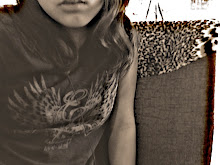For poor families who didn't have slaves, the wives would run the house and raise the children. In households that had slaves, the wives would simply supervise the slaves who were taking care of the children and doing most of the work. Spinning thread and weaving cloth was usually what the women would do in every family, rich or poor.
Usually in their mid-teens, like our age, girls would get married whilst the men would get married around 30. The girls were then under legal control of their husbands (it was passed from the father to the husband). When married, a girl was get a part of the family's fortune (the property and money) as a gift from the parents (or dowry). The husband would ben own and control the money and property until they divorce, which is when he has to give it back to the family. If a divorce does not happen, they would simple pass the dowry to their children.
In Athens, the children, usually just the boys and very few girls, would go to school is learn to read, write, and quote literature, as well as learn and instrument and sing. They would also play sports as this was the start of their military service. All this studying was not so that they could get a job; it was so they could be an effective citizen.
For girls, they only learned to read, write and simple math during their childhood s that they can run their own household in the future.
The education in Sparta was different because Sparta thought that education wasn't really important. When boys turned 7, they would be sent to the barracks where they were put through harsh training. However, they learned basic reading, writing, and math. Girls were also put into physical competition.
Young children in both Sparta and Athens spent their days playing with toys before they turned 7.
In a household, husbands was in charge of all the members of his family and was responsible for them. Greek men, after their service in the military was over, hung out in the agora, which was a marketplace were people would chat, gossip, buy and sell items or food. In the morning, they would buy the supplies and food they need then return home. Here is a picture of an agora which was Greek market place. Image Source.
Here is a picture of an agora which was Greek market place. Image Source.
Either that or they were playing sports and exercised in public sports facilities.
When democracy (or Demokratia in Greek) was created in Greece, men who were citizens were allowed to and had the right to attend assembly. There, they had the right and freedom to speak and vote. Assemblies sometimes had debates and these debates decides how the city was run -- all decided by the people.
~~~~~~~~~~~~~~~~~~~~~~~~~~~~~~~~~~~~~~~~~~~~~~~~
Sources
http://www.worldbookonline.com/student/article?id=ar234900&st=ancient+greece&sc=2#h5
http://en.wikipedia.org/wiki/Ancient_Greece#Education
http://www.bbc.co.uk/schools/ancientgreece/athens/rule.shtml
Sunday, November 16, 2008
What did a daily life is Ancient Greece look like?
Posted by Jen at 10:47:00 PM
Labels: Humanities

